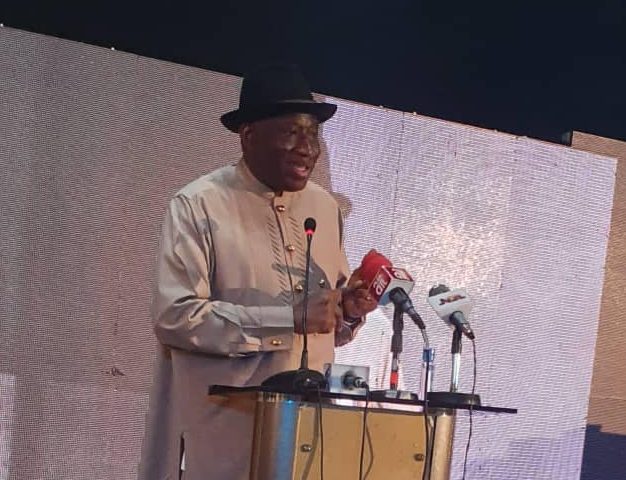Former President Goodluck Jonathan has underscored the place of functional education to the development of the manpower resources of any society.
Jonathan, who was keynote speaker, stated this at the maiden Bayelsa State Education Summit, on Monday in in Yenagoa.
The theme of the five-day event is “Optimising the Delivery, Performance and Sustainability of Outcomes in the Education Sector”.
Highlighting the contributions he made in the development of the education sector when he was governor of Bayelsa and at the national level Jonathan, emphasised the important role of information and communication technology.
Read Also: Sylvester Oromoni: Dowen College alleges ‘ambush’ by family
According to him, his administration made substantial investments at the national and state levels, including providing scholarship programmes.
He stressed that his recognition of the vital place of an educated citizenry was the reason behind his administration’s investment in Almajiri schools in the North.
“Education is a strategic tool for national development and social change. You cannot make progress without educated citizenry. People cannot develop without functional education.
“Today, ICT is key. It is replacing almost everything. The teaching of ICT has to start right from the nursery schools,” he said.
The former president commended the vision of Gov. Douye Diri and his team in holding the summit to fashion out a sustainable policy for the sector.
Jonathan urged the state government to legalise its educational policies so that successive government would not jettison them.
He also charged stakeholders at the summit to consider introducing a common language in the educational curriculum.
“If we must come together, we must have a common language.
“When you want to develop our educational policies, do not forget the languages because language is very critical in creating global citizens,” the former president said.
Declaring the summit open, Gov. Diri said that at the peak of the COVID-19 pandemic, Bayelsa was handicapped as it lacked the requirement in delivering remote learning.
On the need to back educational policies with a law, the governor said a bill would be sent to the House of Assembly to that effect.
Commenting on the need to adopt a common language, Diri said that the state executive council had already adopted Kolokuma as the chosen dialect and directed the Ministries of Education and Ijaw National Affairs to ensure implementation of the policy.
“Language is not only critical in education but also in establishing one’s identity, and conscious efforts must be made to ensure our language does not go into extinction,” the governor said.
He called on stakeholders in the sector to develop a 15-year education plan that could be reviewed periodically to enable Bayelsa people to take their rightful place in the country and the world.
Diri also assured that his administration would continue to support the model schools he inherited from his predecessor and called for support from the private sector, particularly the oil companies operating in Bayelsa.
Chairman of the state Education Development Trust Fund and one-time Minister of Science and Technology, Prof. Turner Isoun, represented by Prof. Francis Sikoki, said the board remains committed to providing interventions in the education sector.
In their goodwill messages, chairman of the state traditional rulers’ council, King Alfred Diete-Spiff, representative of the Executive Secretary, Nigeria Content Development and Monitoring Board, Mr Dan Kikile, and a representative of the Managing Director, Sterling Bank, described Diri’s vision on holding the summit as brilliant.
They said that it was time to put Bayelsa on the global map, particularly in the area of education.

